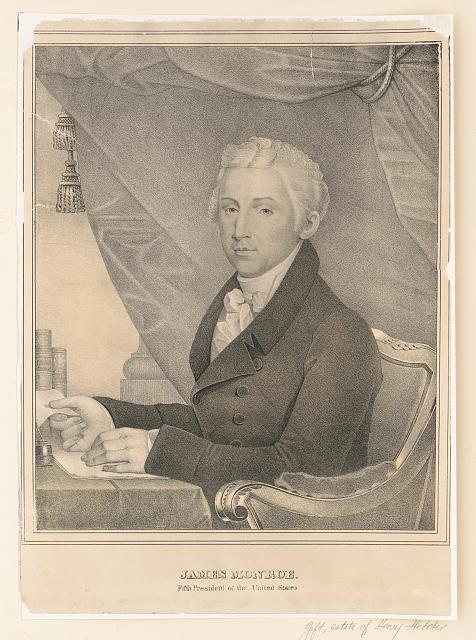James Monroe, the fifth president of the United States, served his nation during a transformative period in American history. From 1817 to 1825, Monroe championed policies that expanded the country’s territory, solidified its independence, and promoted economic growth. This article highlights ten notable accomplishments of President James Monroe, showcasing his significant contributions to the growth and prosperity of the United States.
The Monroe Doctrine:
One of Monroe’s most remarkable achievements was the formulation and implementation of the Monroe Doctrine in 1823. This foreign policy doctrine asserted that European powers should not interfere in the affairs of newly independent nations in the Americas. It became a cornerstone of United States foreign policy, effectively safeguarding the continent from colonization and establishing America’s position as a dominant power in the Western Hemisphere.
The Acquisition of Florida:
During Monroe’s presidency, the United States negotiated the Adams-Onís Treaty in 1819, which resulted in the acquisition of Florida from Spain. This expansion enhanced national security by eliminating a potential foreign threat and solidified the nation’s presence in the southeastern part of the continent.
The Missouri Compromise:
Amid brewing tensions over the issue of slavery, Monroe signed the Missouri Compromise in 1820. This landmark legislation admitted Missouri as a slave state, while simultaneously admitting Maine as a free state, thus preserving the balance between slave and free states in Congress. The compromise temporarily defused tensions, averting a crisis that could have led to armed conflict.
The Era of Good Feelings:
Monroe’s presidency is often associated with a period known as the Era of Good Feelings, characterized by political harmony and relative bipartisan cooperation. By maintaining a non-partisan approach and promoting national unity, Monroe fostered an era of economic growth and cultural expansion, paving the way for a prosperous nation.
The Second Bank of the United States:
Recognizing the importance of a stable financial system, Monroe signed the bill reestablishing the Second Bank of the United States in 1816. This institution acted as a central bank, providing stability and regulation to the nation’s financial affairs, encouraging investment, and fostering economic growth.
The Infrastructure Expansion:
Under President Monroe’s leadership, Congress passed the Internal Improvement Act of 1824, demonstrating his commitment to improving the nation’s infrastructure. This act allocated funds for the construction of roads, bridges, and canals, facilitating trade and connecting various regions of the young nation.
The Treaty of 1818:
Monroe’s administration negotiated the Treaty of 1818 with Great Britain, resolving long-standing boundary disputes and establishing joint sovereignty over the Oregon Territory. This treaty helped to diffuse tensions between the two nations and set the stage for future negotiations over the northern border.
Revamping the Navy:
During Monroe’s presidency, he oversaw significant reforms in the United States Navy. Monroe recognized the importance of a strong maritime force to protect American interests and promote trade. Through increased funding and modernization, the navy grew in strength, ensuring the nation’s security and projecting American power worldwide.
The Acquisition of the Louisiana Territory:
Although Monroe was not directly involved in the Louisiana Purchase, it was during his tenure as James Madison’s Secretary of State that this monumental acquisition was made in 1803. The purchase doubled the size of the United States, securing vast resources and laying the foundation for America’s westward expansion.
The Era of Westward Expansion:
Under Monroe’s presidency, the United States experienced significant westward expansion. From the admission of new states such as Mississippi and Illinois to the Lewis and Clark expedition and the establishment of forts and outposts, Monroe’s policies supported and encouraged settlements in the western frontier, driving the country’s territorial growth.
